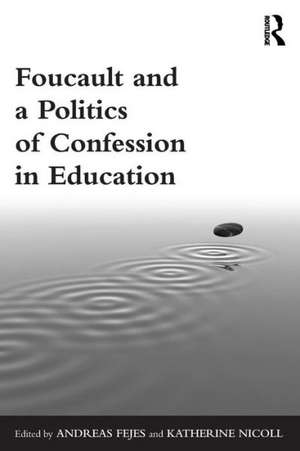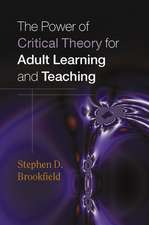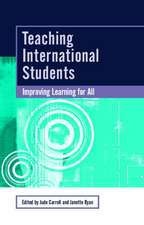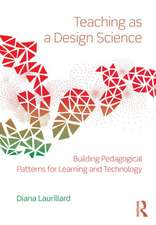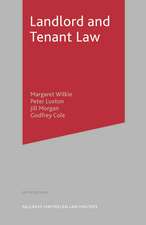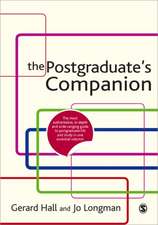Foucault and a Politics of Confession in Education
Editat de Andreas Fejes, Katherine Nicollen Limba Engleză Paperback – 28 iul 2014
This book brings together international scholars and researchers inspired by the work of Michel Foucault, to explore in detail what happens when these practices of confession become part of our lives and ways of being in education. The authors argue that they are not neutral, but political and powerful in their effects in shaping and governing people; they examine confession as discursive and contemporary practice so as to provoke critical thought.
International in scope and pioneering in the detail of its scrutiny of such practices, this book extends contemporary understanding of the exercise of power and politics of confessional practices in education and learning, and offers an alternative way of thinking of them. The book will be of value to educational practitioners, scholars, researchers and students, interested in the politics of their own practices.
| Toate formatele și edițiile | Preț | Express |
|---|---|---|
| Paperback (1) | 439.62 lei 6-8 săpt. | |
| Taylor & Francis – 28 iul 2014 | 439.62 lei 6-8 săpt. | |
| Hardback (1) | 1000.27 lei 6-8 săpt. | |
| Taylor & Francis – 28 iul 2014 | 1000.27 lei 6-8 săpt. |
Preț: 439.62 lei
Nou
Puncte Express: 659
Preț estimativ în valută:
84.13€ • 91.35$ • 70.67£
84.13€ • 91.35$ • 70.67£
Carte tipărită la comandă
Livrare economică 23 aprilie-07 mai
Preluare comenzi: 021 569.72.76
Specificații
ISBN-13: 9780415833813
ISBN-10: 0415833817
Pagini: 240
Ilustrații: 1 black & white tables
Dimensiuni: 156 x 234 x 15 mm
Greutate: 0.39 kg
Ediția:New.
Editura: Taylor & Francis
Colecția Routledge
Locul publicării:Oxford, United Kingdom
ISBN-10: 0415833817
Pagini: 240
Ilustrații: 1 black & white tables
Dimensiuni: 156 x 234 x 15 mm
Greutate: 0.39 kg
Ediția:New.
Editura: Taylor & Francis
Colecția Routledge
Locul publicării:Oxford, United Kingdom
Public țintă
Postgraduate and ProfessionalCuprins
Author bios Acknowledgements Part 1 – Introduction 1. An emergence of confession in education Part 2 – A politics of confession in assessment 2. Confession and subjectifications in school performance evaluations 3. Fabricating the teacher’s soul in teacher education 4. Assessing confession in shaping the professional 5. Confessions of an individual education plan 6. Visualization, performance, and the figure of the researcher
Part 3 – A politics of confession in dialogue 7. On confessional dialogue and collective subjects 8. Guiding adults: researching the ANT-ics of confessing 9. Confessional talk in parenting Part 4 – A politics of confession in State programmes 10. Is giving voice an incitement to confess? 11. Are we constructing Lutherans, people with values or US citizens? 12. Subjectivity, youth unemployment and culture of self 13. Historicizing Chinese self-reflection as a technology of confession Part 5 – A politics of confession as Care of the self 14. Reflections on lifelong learning and the making of the self in 15. Living the present otherwise
Part 3 – A politics of confession in dialogue 7. On confessional dialogue and collective subjects 8. Guiding adults: researching the ANT-ics of confessing 9. Confessional talk in parenting Part 4 – A politics of confession in State programmes 10. Is giving voice an incitement to confess? 11. Are we constructing Lutherans, people with values or US citizens? 12. Subjectivity, youth unemployment and culture of self 13. Historicizing Chinese self-reflection as a technology of confession Part 5 – A politics of confession as Care of the self 14. Reflections on lifelong learning and the making of the self in 15. Living the present otherwise
Descriere
In liberal, democratic and capitalist societies today, we are increasingly invited to disclose our innermost thoughts to others. We are asked to turn our gaze inwards, scrutinizing ourselves, our behaviours and beliefs, while talking and writing about ourselves in these terms. This form of disclosure of the self resonates with older forms of church confession, and is now widely seen in practices of education in new ways in nurseries, schools, colleges, universities, workplaces and the wider policy arena.
